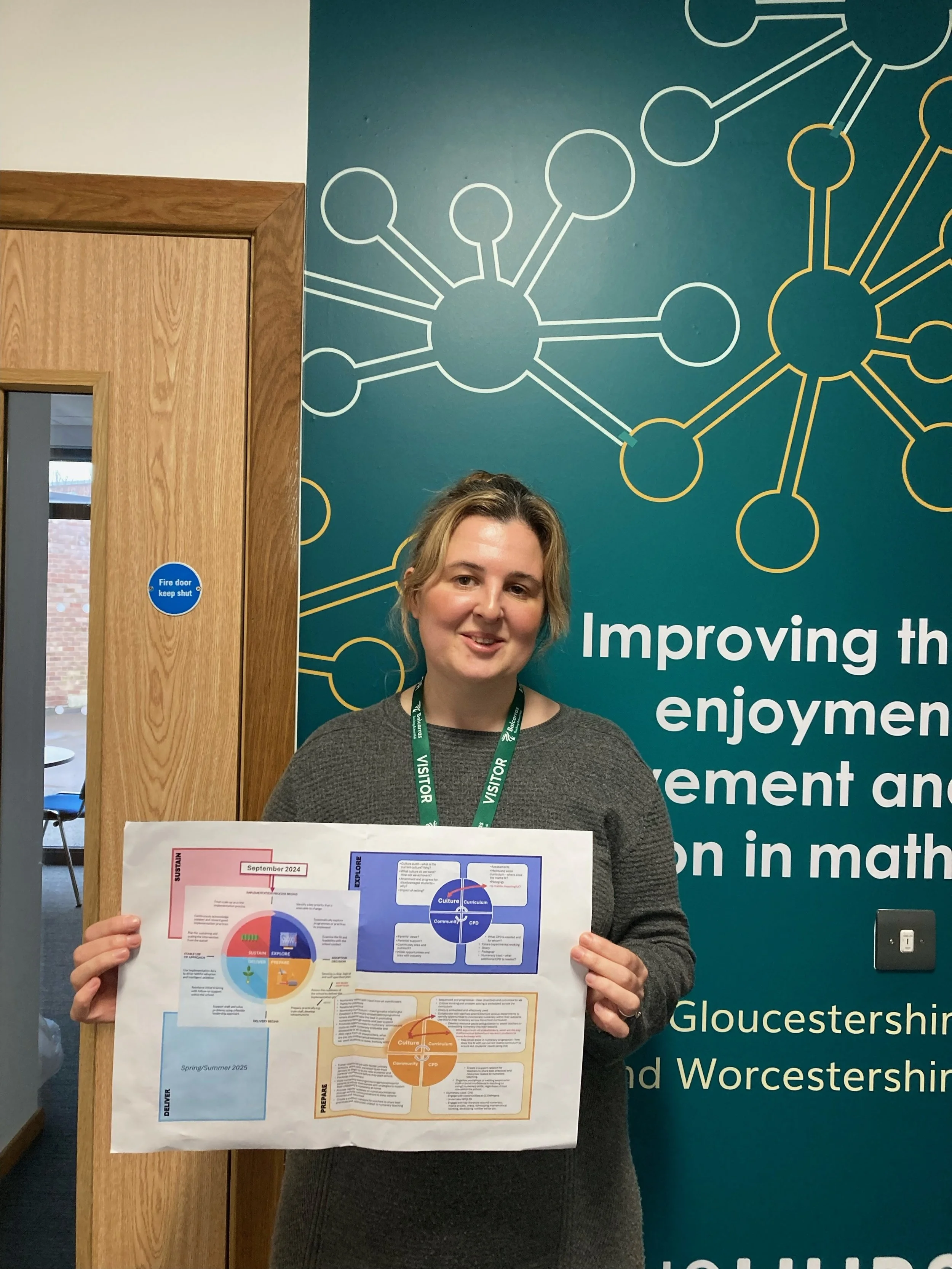
Leading Primary Mathematics - NPQLM
For teachers who are, or are aspiring to be, leaders of Maths across a school or phase in a primary setting.
-
Developing Primary Mathematics - you will learn how to shape a culture of maths across your Primary setting and develop a deep understanding of how pupils learn mathematics becoming skilled in leading staff to develop pupils interconnected understanding of concepts, their procedural fluency and automaticity in key number facts.
Teaching - you will learn how to support teachers at all levels in your school, key stage or phase to develop their knowledge and classroom skills in teaching primary mathematics.
School culture - you will strengthen your ability and that of your colleagues to contribute to a school culture in which pupils can thrive and succeed and have a positive attitude towards mathematics.
How pupils learn - you will deepen your knowledge of the best ways to develop, adapt, embed and practice good models of learning across the whole school community, key stage or phase.
Subject and curriculum - you will learn how to support and improve high quality lesson design, teaching, learning and assessment in primary mathematics.
Professional Development - you will deepen your knowledge of the best ways to provide effective professional development in mathematics curriculum, pedagogy and assessment across the whole school community.
Implementation - you will learn how to implement change successfully within your context by understanding the stages of implementation and applying them with the support of your facilitators and colleagues.
-
We know that our children and young people need teachers who are committed to their education and are confident learners themselves. Our programmes have been developed with teachers and leaders to:
Create professionally confident teachers and leaders.
Grow the next generation of leaders with the skills and knowledge to use the evidence-base for the benefit of their children and young people.
Retain the best teachers who are excellent, collaborative role models for their schools and communities.
Inspire leaders who can harness the power of rich learning environments for their children and young people no matter the current circumstances
-
Primary school teachers and leaders who currently lead or aspire to lead mathematics across a year group, key stage, phase or whole school.
For numeracy specialists, maths subject leaders and those with a secure understanding of mastery approaches to teaching maths.
For teachers who wish to develop the skills, confidence and knowledge to implement a detailed and coherent mathematics curriculum successfully through a supported implementation project.
-
12 months followed by an 8 day open book summative assessment case study task.
Venue: Balcarras School, Cheltenham.
12 month programme comprising:
Induction & Consolidation Conferences - (full day - face to face)
Facilitated face to face Peer Learning - (4 x 4.5 hour sessions)
Supported by:
Online Learning
School based implementation project
Mentoring
Engagement: There must be a minimum of 90% engagement in the programme for participants to be eligible for final assessment
Assessment: Each NPQ is assessed using a case study approach completed within a specified eight day window at the end of the programme
“I got so much from the NPQLPM that I’ve now started a second NPQ with Odyssey and Balcarras TSH! The self-directed learning workload was manageable even as a busy working mum of three, and the in-person peer sessions were invaluable. They created space for honest conversations, shared problem-solving, and plenty of professional encouragement. If you’re considering an NPQ, I’d say go for it. It’s more than just CPD - it’s an opportunity to reflect, grow, and take your practice in a direction that truly matters to you.”
— Jen Elliott, NPQLM participant, Archway School


